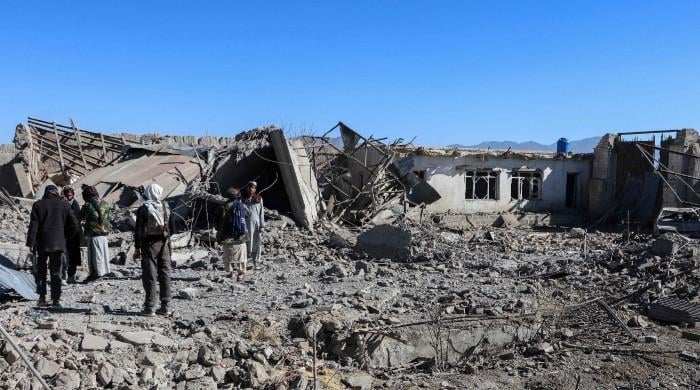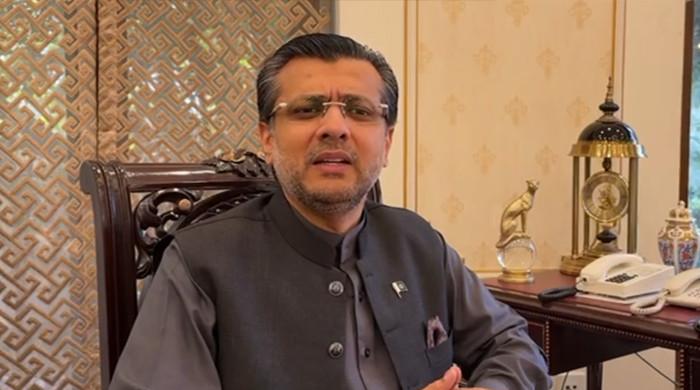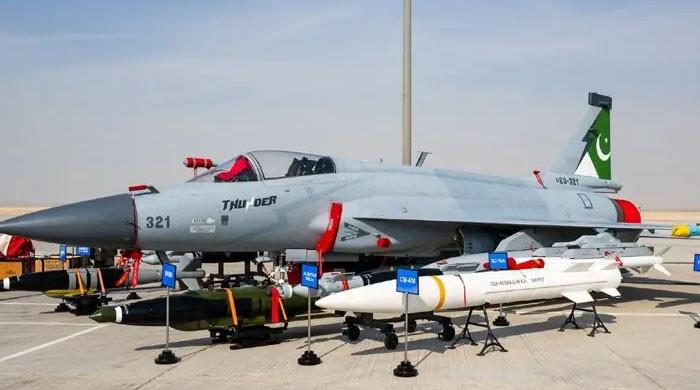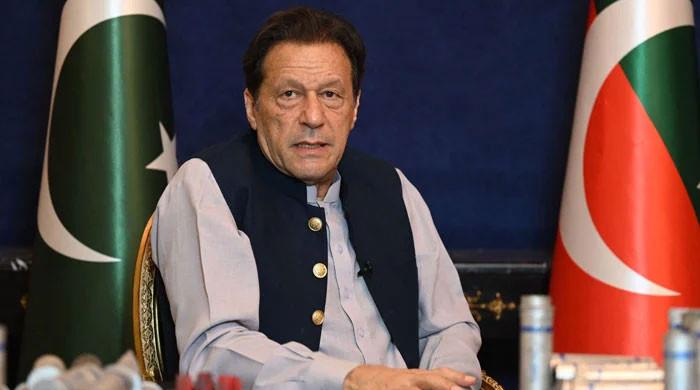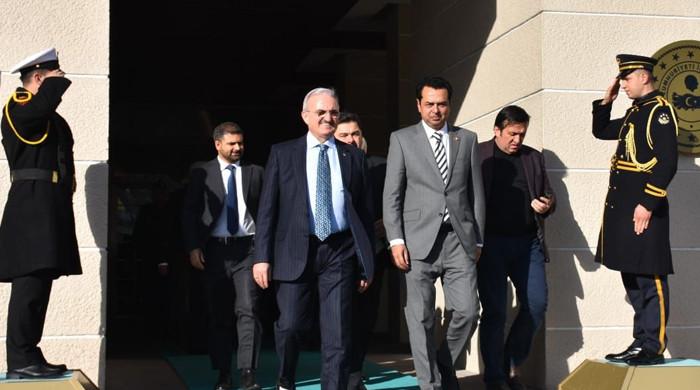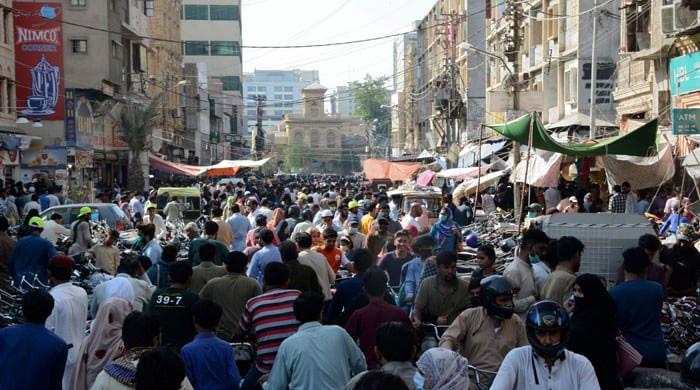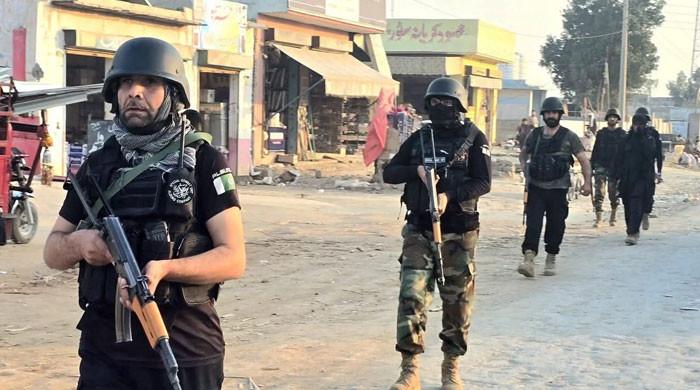COAS hopes for peace with India, says ‘it takes two to tango’
We live in one of the most volatile regions of the world, says Gen Bajwa
October 11, 2017
KARACHI: Chief of Army Staff General Qamar Javed Bajwa on Wednesday said that Pakistan has expressed and demonstrated its genuine desire to have peaceful relations with its eastern neighbour, but "it takes two to tango".
Army chief Gen Bajwa, referring to the situation on the external front, said it continues to remain in a flux.
"With a belligerent India on our east and an unstable Afghanistan on our west, the region remains captive due to historical baggage and negative competition," said Bajwa.
He said Pakistan on its part, is making a "deliberate and concentrated effort to pacify the western border through a multitude of diplomatic, military and economic initiatives".
Bajwa also said that the security forces have provided a significant "human security" in Fata and surrounding areas.
"In fact, what we have done in FATA and started in Balochistan could easily be termed as the best example of a holistic approach to security," added Gen Bajwa.
Viable balance between economy, security
The chief of army staff said Pakistan has to continuously ensure a viable balance between economy and security.
The army chief was speaking at a seminar on the interplay of economy and security.
"We have to continuously ensure a viable balance between economy and security. Only then will we arrive at a future that ensures sustained peace and happiness for our people," said Gen Bajwa.
He added that countries such as Pakistan do not have the luxury of reviewing the balance between guns and butter.
"We live in one of the most volatile regions of the world, dealing with multiple crises since inception, but increasingly so during the last four decades," said the army chief.
Referring to national security, the army chief said leaders across the world understand that security is influenced by factors such as political, economic, military, social, human and environmental facets.
He said as the army chief, his primary responsibility is for military security, both external and internal, but he can not talk about uni-dimensional security without understanding all the other influential factors.
"Today, we have a much-improved security situation on the internal front," said Bajwa while adding that challenges to the writ of the state have been defeated.
He did elaborate and further said that residual threat still persists in the country.
"The situation is stable but there is apparent fragility at places."
National Action Plan
General Bajwa also spoke about the National Actional Plan (NAP), which came into existence after the massacre at Army Public School Peshawar in December 2014.
"We need a comprehensive effort to pursue National Action Plan and remove vulnerabilities well before they turn into threats," said the chief of army staff.
He said that many of the planned measures, if implemented in a timely manner, will contribute directly to the economic and "even the political stability of the country".
Referring to police and judicial reforms as obvious examples, he further said seminary reforms are vital.
"We cannot afford to leave a large segment of our youth with limited options - Madrassahs must enable their students to become useful members of the society who are not left behind in any field of life."
Commending the Army and the law-enforcement agencies in their role for ensuring security, Bajwa said that improvements in the security environment have started to pay off.
"Recently, we not only had the most peaceful Muharram in years but the Bohra community validated our claim of improved security by selecting Pakistan for their annual gathering," said Bajwa.
"But there is still a long way to go."
Economy and Karachi
The economy is showing mixed indicators, growth has picked up but debt is sky high, said Bajwa while referring to the current economic situation of the country.
"Infrastructure and energy have improved considerably but the current account balance is not in our favour."
Bajwa suggested that the tax to GDP ratio needs to improve as it is "abysmally low" and needs to improve if Pakistan is to reduce its reliance on international monetary organisations.
"At the same time, the common man across Pakistan needs reassurance of benevolent and equal treatment from the state in return," said the chief of army staff, adding that it is high time to place growth and sustainability at the highest priority.
He also said that economy remains one of the highest concerns in National Security Council meetings.
"We have to increase our tax base, bring in fiscal discipline and ensure continuity of economic policies," further said Bajwa.
Elaborating further, Bajwa laid emphasis on the link between the economy and the security environment of Karachi.
"When our enemies want to choke Pakistan, they try to destabilize Karachi because when Karachi bleeds, Pakistan bleeds."
He said due to such factors, peace in Karachi has remained the top priority.
"We have worked very hard to restore peace and now hope that economic activity would return at a fast pace," Bajwa added.
CPEC
The chief of army staff, once again reiterating that external factors are trying to dictate security priorities, said strong links exist between security and the economic future of the country exist.
"The centrepiece of this effort is China-Pakistan Economic Corridor (CPEC)."
Referring to CPEC as powerful springboard for shared development in the CASA (Central Asia-South Asia) region, Bajwa said the project is a complete development platform.
"This is the future of our people, a vital national interest on which we will never compromise, regardless of the loudness of opposing voices," the army chief said while conveying a strong message.
He also referred to CPEC as an example of regional and a break from politics of confrontation.
"I sincerely believe that the region will sink or sail together – that is how it has played out across the world," said the army chief and added that he wants to convey to Pakistan's neighbours in the east and west that out destinies are next inextricably linked.
Bajwa, however, said that until the current environment of mutual distrust is eliminated, Pakistan cannot possibly imagine enduring peace and socio-economic development in the region.
Vision of integrated economic growth
Pakistan is capable of creating sufficient fiscal space to address underlying structural problems through tax reforms, documenting economy, diversifying the export base, and encouraging savings to finance a level of investment that could sustain growth rate higher than the rise of population, explained Gen Bajwa.
Referring to the vision of integrated economic growth across Pakistan and the region as noble, Bajwa said it also needs to be secured.
Calling on the ruling government to take the initiative and turn the economy around, he said that the Army has done its part on the security front.
"If any nation can survive what we went through, it can also make its mark when the going is relatively easier."
The army chief concluded his address by saying that the debate generated at the seminar will become part of the wider national and regional discourse.




